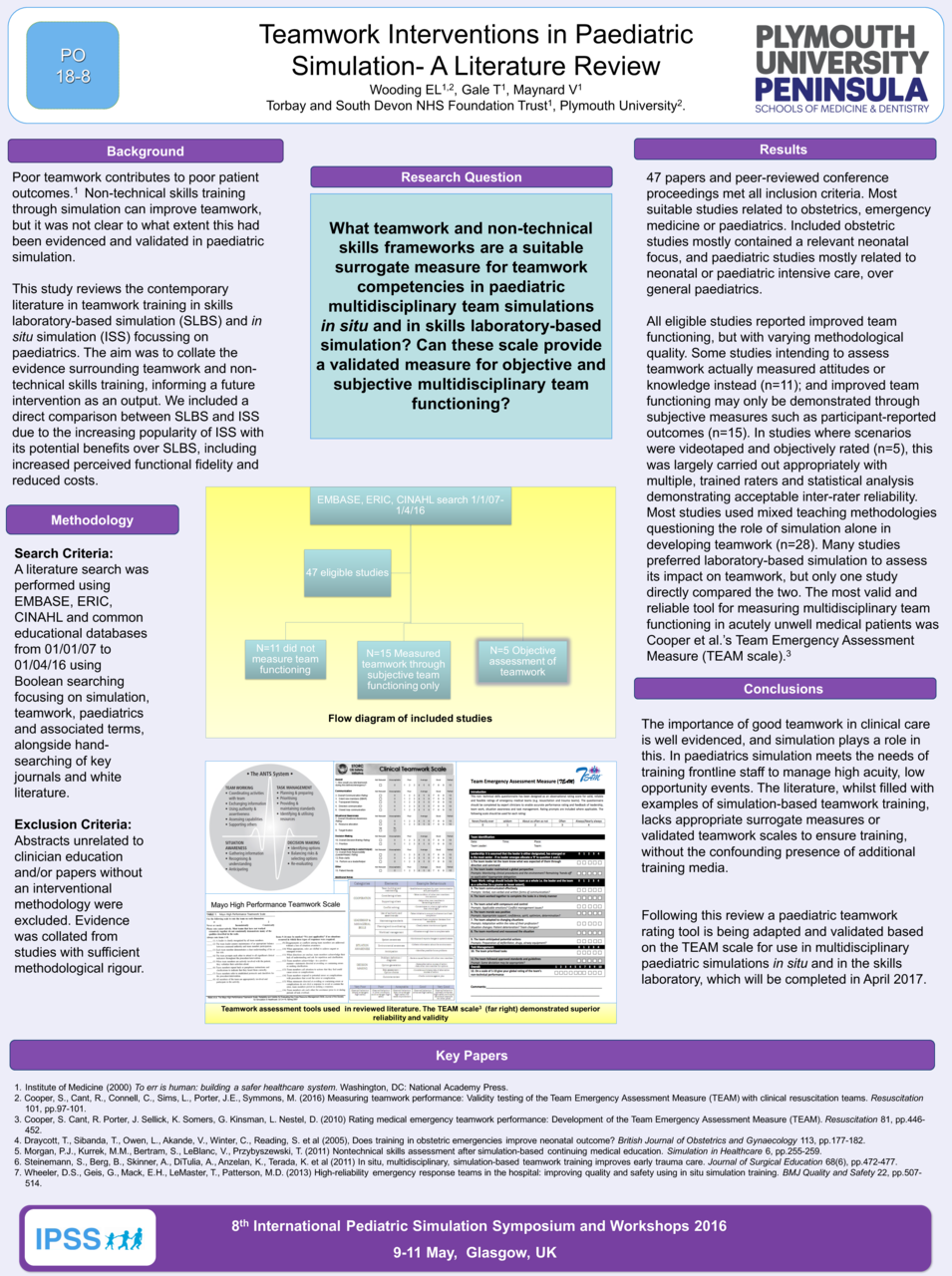Abstract
Background
Poor teamwork contributes to poor patient outcomes. Non-technicalskillstraining through simulation can improve teamwork, but it was not clear to what extent this had been evidenced and validated in paediatric simulation.
This study reviews the contemporary literature in teamwork training in skills laboratory-based simulation (SLBS) and in situ simulation (ISS) focussing on paediatrics. The aim was to collate the evidence surrounding teamwork and non- technical skills training, informing a future intervention as an output. We included a direct comparison between SLBS and ISS due to the increasing popularity of ISS with its potential benefits over SLBS, including increased perceived functional fidelity and reduced costs.
Methodology
Search Criteria: A literature search was performed using EMBASE, ERIC, CINAHL and common educational databases from 01/01/07 to 01/04/16 using Boolean searching focusing on simulation, teamwork, paediatrics and associated terms, alongside hand- searching of key journals and white literature.
Exclusion Criteria: Abstracts unrelated to clinician education and/or papers without an interventional methodology were excluded. Evidence was collated from studies with sufficient methodological rigour.
Results
47 papers and peer-reviewed conference proceedingsmetallinclusioncriteria. Most suitable studies related to obstetrics, emergency medicine or paediatrics. Included obstetric studies mostly contained a relevant neonatal focus, and paediatric studies mostly related to neonatal or paediatric intensive care, over general paediatrics.
All eligible studies reported improved team functioning, but with varying methodological quality. Some studies intending to assess teamwork actually measured attitudes or knowledge instead (n=11) and improved team functioning may only be demonstrated through subjective measures such as participant-reported outcomes (n=15). In studies where scenarios were videotaped and objectively rated (n=5), this was largely carried out appropriately with multiple, trained raters and statistical analysis demonstrating acceptable inter-rater reliability. Most studies used mixed teaching methodologies questioning the role of simulation alone in developing teamwork (n=28). Many studies preferred laboratory-based simulation to assess its impact on teamwork, but only one study directly compared the two. The most valid and reliable tool for measuring multidisciplinary team functioning in acutely unwell medical patients was Cooper et al.’s Team Emergency Assessment Measure (TEAM scale).
Conclusions
The importance of good teamwork in clinical care is well evidenced, and simulation plays a role in this. In paediatrics simulation meets the needs of training frontline staff to manage high acuity, low opportunity events. The literature, whilst filled with examples of simulation-based teamwork training, lacks appropriate surrogate measures or validated teamwork scales to ensure training, without the confounding presence of additional training media.
Following this review a paediatric teamwork rating tool is being adapted and validated based on the TEAM scale for use in multidisciplinary paediatric simulations in situ and in the skills laboratory, which will be completed in April 2017.






